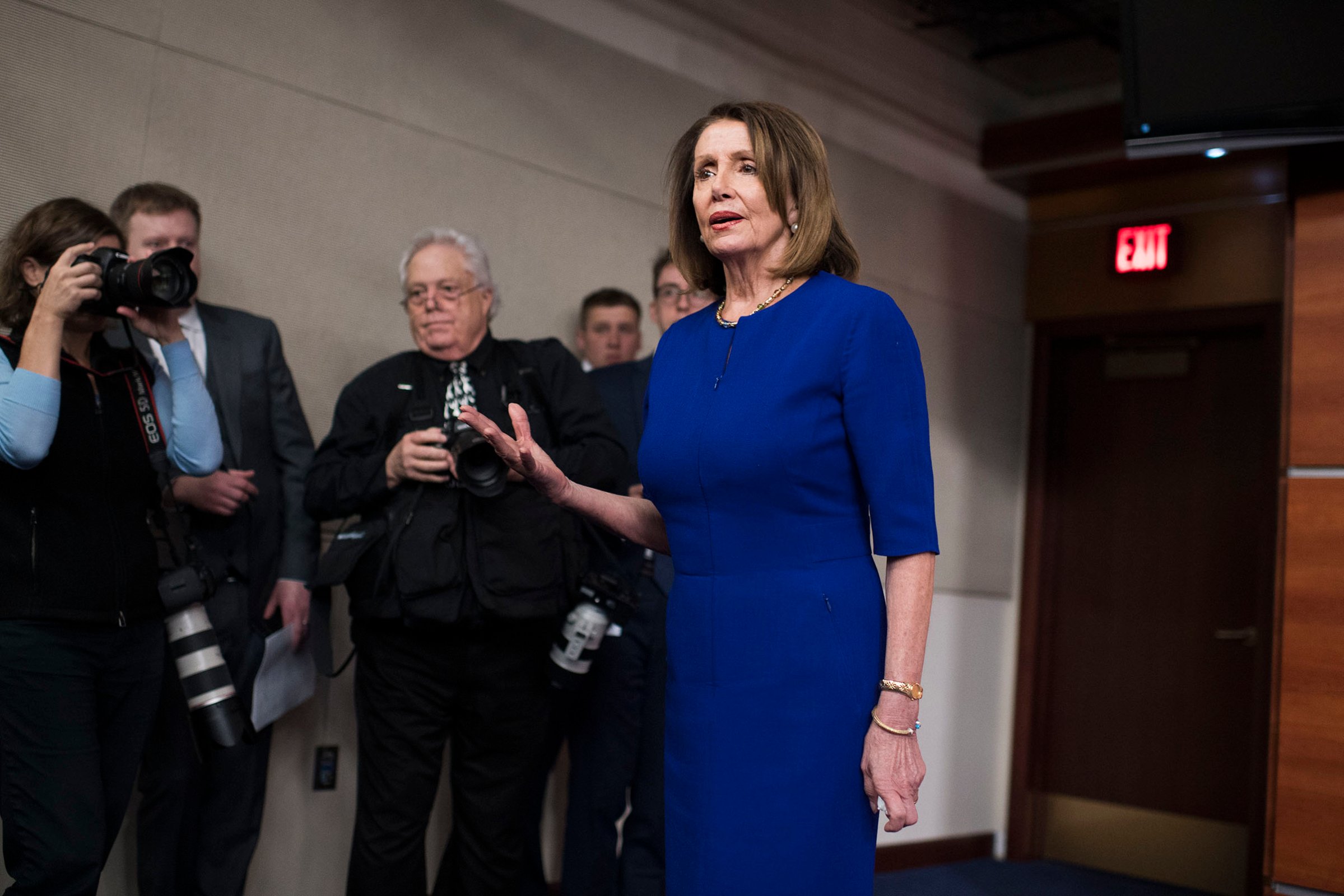
Impeachment, at its core, is a political act. The Founders of the United States intentionally delegated the ultimate check on the Chief Executive to the Legislative Branch, not to the Judiciary. The reason is plain. The weighty determination of whether to remove a President depends on factors beyond the mere application of law to facts. It is not a matter of rules of evidence and burdens of proof. Politicians also must consider the unity of the country and the function of its government.
In the coming months, as the public learns more details from the special counsel’s investigation–and as the Southern District of New York busies itself with its own independent work–our nation is likely to gain a more complete picture of Donald Trump’s conduct during and after the 2016 election. Already it looks quite likely that he committed criminal violations of campaign-finance laws when he concealed hush-money payments to Stormy Daniels. It is possible that Robert Mueller may reveal evidence of additional wrongdoing, perhaps even criminal misconduct.
If so, our political debate is likely to be dominated by a vitally important question: Does the President’s alleged misconduct merit his removal from office? But we must also ask that fundamental question: Who should decide?
Barring unforeseen circumstances–including potent new evidence of gravely bad acts–will it be healthy for our nation to begin impeachment proceedings at the same time presidential primaries are under way? Or would it be preferable for the Democrats to diligently lay out the evidence and present the American people with an acceptable alternative?
As a conservative and frequent critic of the President, on this point I surprisingly find common ground with Nancy Pelosi, who said recently, “Impeachment is so divisive to the country that unless there’s something so compelling and overwhelming and bipartisan, I don’t think we should go down that path.”
If he were alive today, Alexander Hamilton would nod right along. In “Federalist No. 65,” he noted that prosecution of impeachable offenses would “seldom fail to agitate the passions of the whole community.” It will “connect itself with the pre-existing factions, and will enlist all their animosities, partialities, influence, and interest on one side or on the other.”
Given this reality, and a looming election, Pelosi is correct that the better course is to give the people the facts and let them decide the outcome. Indeed, the American people in 2020 will be in a far better position to render judgment than they were in the past two impeachment controversies. Evidence of Richard Nixon’s and Bill Clinton’s misconduct didn’t fully emerge until well into their second terms. Voters had no opportunity to make a direct decision.
The calculus would likely be different if overwhelming evidence of wrongdoing emerged early in a President’s first four years, when the American people would face the prospect of a full term with a probable felon at the helm. But that ship is sailing. The first Democratic primary debate is a mere three months away. Democratic candidates are already in Iowa and New Hampshire. Even if impeachment proceedings began almost immediately after Mueller issued his report, they’d be conducted in the heart of the presidential campaign.
Read More: Why Impeachment Should Be Treated as a Legal Matter
Moreover, no one should think that removal by the people is somehow an escape from accountability. Indeed, for Trump the consequences of losing in 2020 could be catastrophic. He’d forfeit his pardon power and be exposed to indictment and a potential trial. Submitting the question of removal to the people would also strip from the body politic the power of the Republican claim that Trump is the victim of a “soft coup” at the hands of the “deep state.”
And let’s not forget the important, relevant factor that as things now stand, impeachment by the House is an exercise in futility. The Republican Senate will not convict.
An inherently political process demands good-faith political considerations. At this stage of Trump’s first term, the impeachment clock is ticking away. The path to accountability runs through the American people. Savvy politicians like Pelosi understand Hamilton well enough to know that America’s “pre-existing factions” shouldn’t be further inflamed absent the most compelling need, especially when the President will soon face the jury that truly matters–an engaged electorate ready to render its verdict.
French is a TIME columnist, lawyer and senior fellow at the National Review Institute
More Must-Reads From TIME
- The 100 Most Influential People of 2024
- Coco Gauff Is Playing for Herself Now
- Scenes From Pro-Palestinian Encampments Across U.S. Universities
- 6 Compliments That Land Every Time
- If You're Dating Right Now , You're Brave: Column
- The AI That Could Heal a Divided Internet
- Fallout Is a Brilliant Model for the Future of Video Game Adaptations
- Want Weekly Recs on What to Watch, Read, and More? Sign Up for Worth Your Time
Contact us at letters@time.com